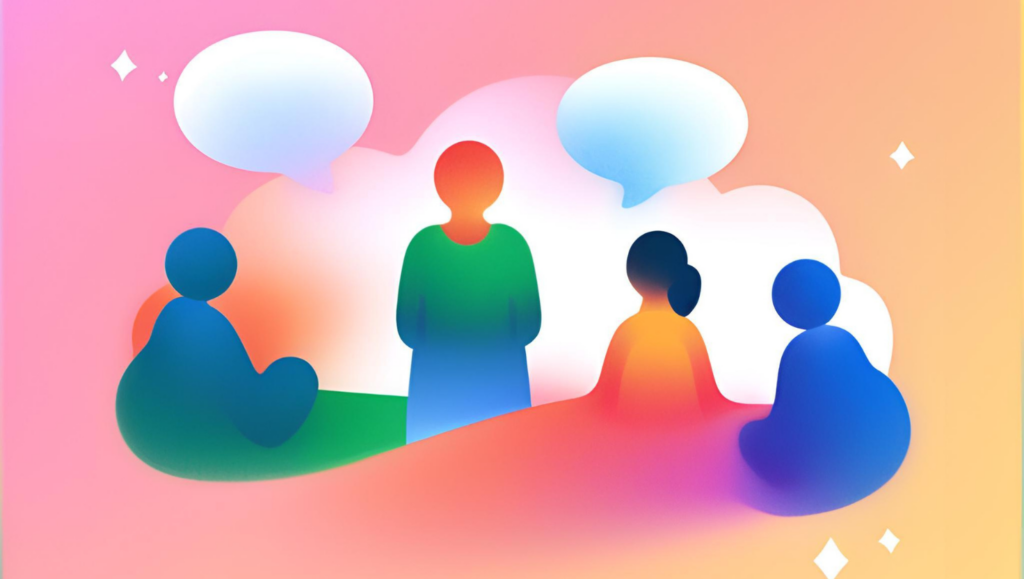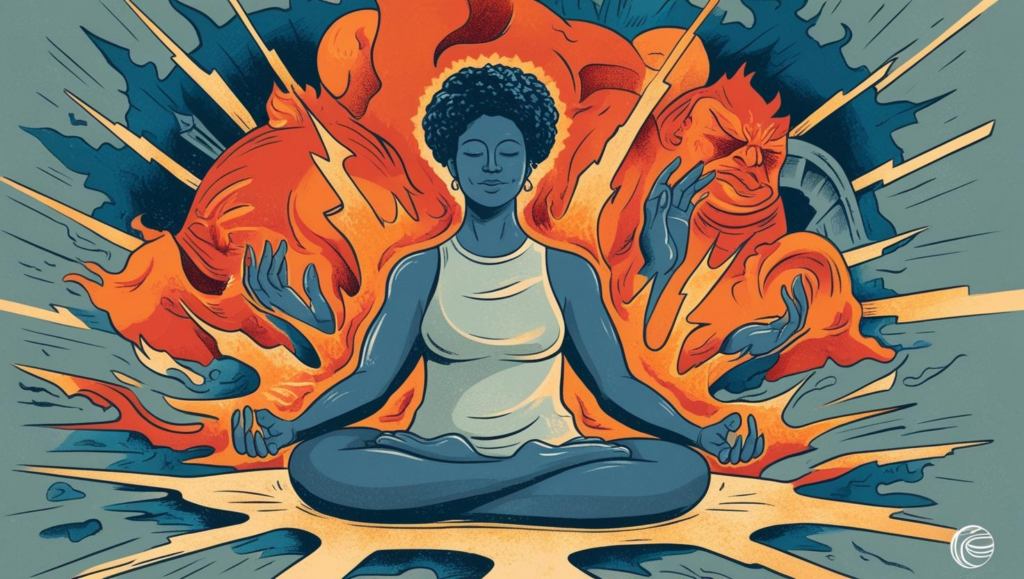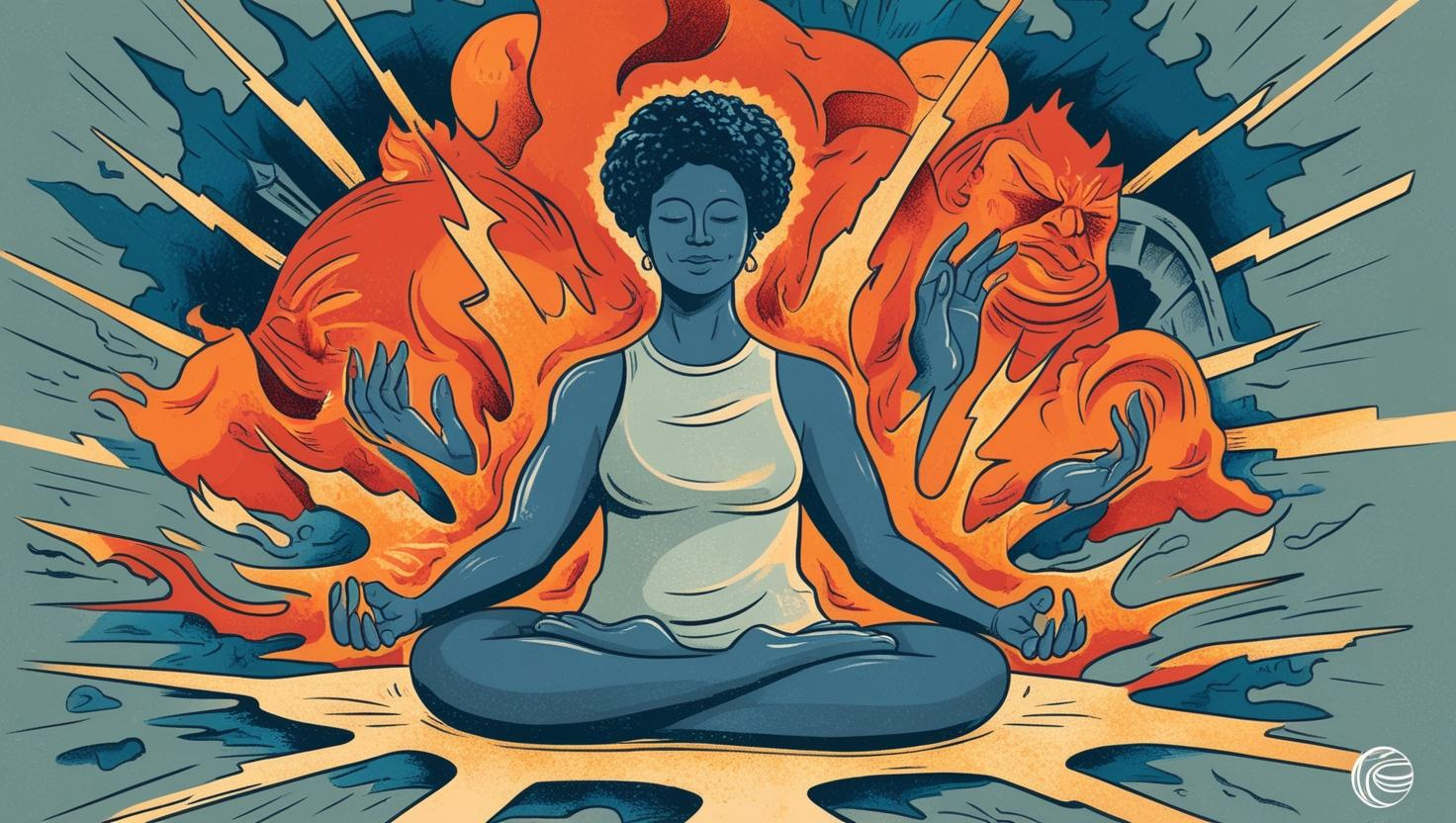Political Stress is real. When the world feels unstable, and politics directly impact your rights, safety, or sense of belonging, it’s natural to feel overwhelmed. For many people, especially the ones in more vulnerable groups, political decisions are not just abstract debates: they have real and painful consequences. Whether it’s the erosion of rights, increased discrimination, or an ongoing battle for recognition and dignity, the weight of these struggles can feel immense.
In times like these, emotional distress is not just expected: it’s a sign that you care deeply about justice, fairness, and your community. Fear, anger, exhaustion, and even numbness are all valid responses to an environment that often fails to protect the most vulnerable. If you find yourself feeling drained or struggling to cope, know this: your feelings matter, your exhaustion is real, and your need for safety is not negotiable.
Acknowledge the Emotional Impact of Political Stress
When political instability and injustice unfold, many people feel a sense of deep anxiety or despair. The constant flow of negative news can lead to emotional burnout, while uncertainty about the future can create feelings of helplessness. If this resonates with you, take a moment to pause and check in with yourself. Try these simple things:
- Ask yourself: “How have you been feeling lately?”
- Check your body: are you holding tension in your body: tight shoulders, clenched jaw, shallow breathing?
- Check your feelings: are you experiencing moments of sadness, anger, or frustration that feel overwhelming?
- Check your mind: have you been struggling to focus, feeling emotionally drained, or losing motivation?
These reactions are normal, especially if you are part of a marginalized group or directly impacted by harmful policies. You are not “overreacting” (and let anyone tell you otherwise): your body and mind are responding to stress in a very real way.
Instead of pushing these feelings aside, try to acknowledge them with self-compassion. You can try doing so in some of these ways:
💡 Naming Your Emotions – Say them out loud or write them down. “I feel angry because my rights are being threatened.” “I feel exhausted from constantly fighting to be heard.” Naming emotions helps process them.
💡 Practicing Self-Compassion – Instead of judging yourself for struggling, remind yourself: “This is hard, and it’s okay that I’m finding it difficult.” Treat yourself with the same kindness you would offer a friend.
💡 Validating Your Experience – If you’re feeling overwhelmed, it’s not because you’re weak—it’s because you’re human. The world can be difficult, but your reactions are completely valid.
💡 Ask for help – whether it’s a friend or a professional (a counsellor or a psychotherapist), it’s important to share your feelings and have someone listen and understand your struggles.

Community Matters
Having a support system can help you process your emotions, remind you that you’re not alone, and reinforce the fact that your existence is valid and valuable. Studies show that social support can reduce stress, improve mental health, and even increase resilience in the face of adversity.
But community is more than just a coping mechanism: it’s a force for change. Throughout history, oppressed groups have found strength in each other, creating movements that have led to real progress. Connection reminds us that we are stronger together.
Ways to Cultivate Connection
💬 Reach Out to Trusted People – Whether it’s a close friend, a support group, or an online community, talking about your feelings with those who understand can be incredibly healing. Even a simple conversation can make a difference.
🌈 Join or Support Safe Spaces – If you’re part of a marginalised community (whether it’s about your sexuality, your origin, your skin colour, your religion or anything else) If you don’t already have a strong support system, consider seeking out LGBTQIA+ centers, activist groups, or online forums where you can connect with others who share your experiences.
🤝 Engage in Collective Care – Mutual aid groups, activist organizations, and grassroots movements often provide not just resources but also emotional support. Contributing to or benefiting from these spaces can create a sense of belonging.
📴 Set Boundaries on Harmful Conversations – Not every discussion is worth your emotional energy. It’s okay to step away from debates that make you feel unsafe or exhausted. It’s important to have conversations with people who don’t think the same way you do and to share experiences, but when you feel overwhelmed, surround yourself with people who respect your lived experience.
💖 Ask for Help When Needed – Struggling alone can make things feel heavier than they are. If you need support, whether it’s counseling, financial assistance, or a listening ear, reach out for someone. There is no shame in needing help.
At its core, community reminds us that we are not alone, we are not powerless, and we are worth fighting for. No matter how difficult things feel, there are people who see you, who care, and who stand beside you.

Protecting Your Mental Health in a Constantly Changing World
In a time when news travels fast and social media keeps us constantly updated, it can feel impossible to escape the chaos of political turmoil. Every day, there are new headlines, new debates, and new reasons to feel anger, sadness, or fear. While staying informed is important, it’s just as crucial to protect your mental and emotional well-being.
Many of us feel guilty stepping away, as if we are abandoning the fight or ignoring the suffering of others. But here’s the truth: you cannot pour from an empty cup. You are allowed to rest. In fact, taking care of yourself is part of sustaining your ability to create change in the long run.
The Importance of Setting Boundaries with News & Social Media
Not all information is helpful. The 24-hour news cycle thrives on fear, and social media algorithms amplify outrage. Overexposure to bad news can create a sense of helplessness, reinforcing anxiety and stress rather than inspiring action.
Here’s how to stay informed while protecting your well-being:
📵 Limit the Time You Spend Consuming News – Set specific times to check the news instead of constantly refreshing your feed. You don’t need to be updated every minute to stay engaged.
⚖️ Be Mindful of Your Emotional State – If reading about politics leaves you feeling hopeless, it may be time to take a break. Notice when your body and mind start feeling overwhelmed, and honour that by stepping away.
💡 Curate Your Social Media Feed – Follow accounts that provide balanced, solution-oriented perspectives. Mute or unfollow pages that create unnecessary distress or make you feel powerless.
🛑 Give Yourself Permission to Disconnect – Logging off for a few hours, days, or even longer is okay. Stepping away doesn’t mean you don’t care: it means you’re prioritising your mental health.
🌿 Engage in Activities That Ground You – Instead of consuming distressing content, replace that time with something that nurtures you: reading, meditating, spending time in nature, mindfulness or doing something creative. Maybe it’s time to find a new hobby that excites you?
Finding Joy as a Form of Resistance
It’s easy to feel like joy is out of reach when the world is heavy. But joy, love, and laughter are not luxurie, they are acts of defiance in the face of oppression. Rest is not just self-care: it’s resistance.
Here are some ways to reclaim joy:
🌸 Celebrate Small Wins – Whether it’s personal growth, a kind moment shared with a friend, or a community victory, take time to acknowledge the good.
🎭 Express Yourself Creatively – Art, music, writing, and movement can be powerful ways to process emotions and channel them into something meaningful. What’s a song you’d really like to sing? What’s a hobby of yours that you haven’t been nurturing lately? When’s the last time you danced in your living room? What would you paint right now if you had a canvas?
🧘 Prioritise Rest and Pleasure – Do things that bring you peace, whether it’s listening to music, cooking, spending time with loved ones, or simply being present in the moment.
🌍 Find Meaning in Action – If you feel called to act, engage in ways that align with your values: whether it’s advocacy, volunteering, or supporting those affected by harmful policies. Even small actions can create ripples of change. You can start by having conversations with the people around you. Ever heard of the butterfly effect?
You Are Not Alone
No matter how overwhelming things feel, remember this: You are not powerless. You are not alone. And your well-being matters. The fight for justice is long, but you don’t have to carry it all on your own. Take care of yourself, lean on your community, and allow yourself moments of peace.
Your existence, your joy, your love, your voice, are already a form of change. 💙🏳️🌈🏳️⚧️
If you need help in these times of social instability, counselling may be the right choice for you. Message me at valerio.a.counseling@gmail.com to begin your journey of self care with me.


No responses yet